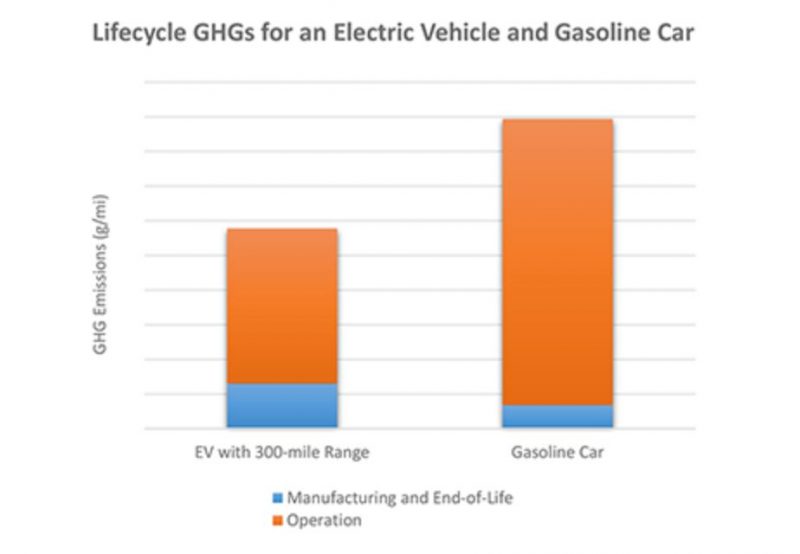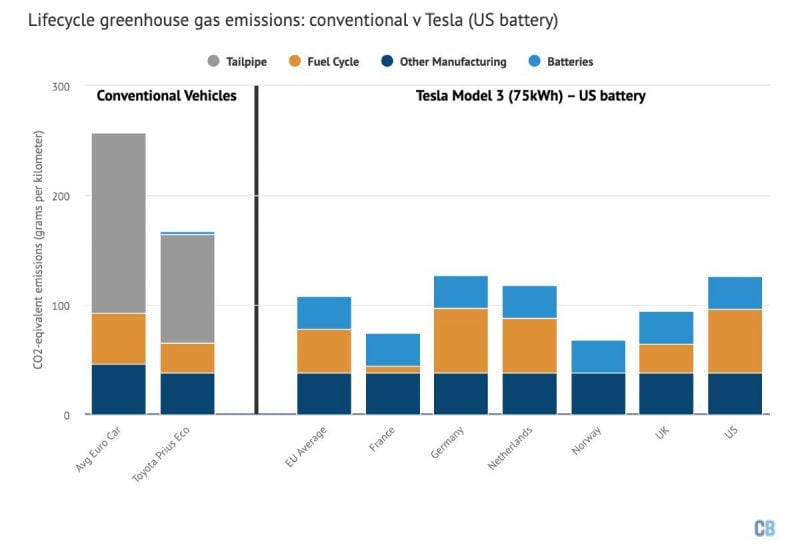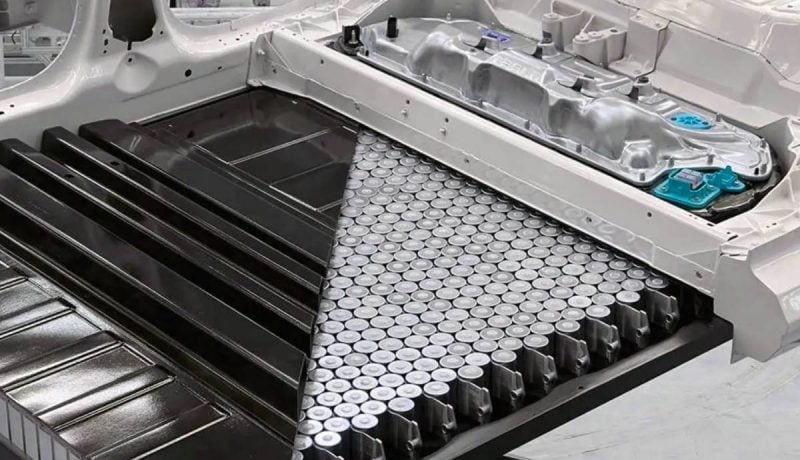Skeptics often argue that the battery manufacturing process for EVs and a dirty electricity grid outweigh environmental benefits of reducing tailpipe emissions, therefore it doesn’t matter if someone drives a battery electric vehicle or an eight cylinder powered combustion engine.
There is some truth to this, when looking at the problem through a very short-term minded lens. Gathering the resources and minerals needed to manufacture a large battery pack is the primary reason why electric vehicles have higher greenhouse gas (GHG) emissions when the car is leaving the factory, but as the car accumulates miles on the odometer the manufacturing emissions are offset quickly.

On the Subject of Batteries
Tesla, who is often viewed as a leader in sustainability in EV manufacturing, reported that their latest generation Model 3 and Y vehicles breakeven in GHG emissions after only 6,500 miles of operation. (Source: Tesla 2021 impact report, page 57) Assuming that an average American driver travels 13,500 miles per year, that is a GHG breakeven point of less than 6 months. This level of GHG efficiency is possible through new manufacturing processes, as well as economies of scale. We can expect other EV brands to cut down on manufacturing GHGs as more EVs are produced at scale. Furthermore, there is still a lot of room for improvement. Electric vehicles have only been manufactured at scale in the last decade, while ICE vehicles have benefited from a century of refinement.
What is often missed in the argument against EV batteries is the high degree of recyclability compared to ICE powertrains. When done well, and done at scale, upwards of 92% of the EV battery mass can be reclaimed in an efficient recycling process, and be put back into the manufacturing loop for new EV batteries.
The “Dirty” Electric Grid
Electricity comes from a wide range of sources, and some sources are much cleaner than others. Should we give up on EVs in areas that rely on dirty sources such as coal powered plants? A 2021 study from The International Counsil on Clean Transportation found even in the worst case scenario of a purely coal powered electricity grid, EVs are less harmful to the environment than a gasoline combustion car. This is possible due to the inherent energy efficiency possible with electric drivetrains, as opposed to combustion engines where most of the chemical energy is wasted as heat. The gap in GHGs between EVs and ICE vehicles is only poised to widen as the world moves away from dirty energy and deploys more clean renewable energy sources.
CarbonBrief.org has an excellent comparison of lifecycle GHG emissions for EVs in several different national electric grids. The chart uses 2019 statistics, which have undoubtedly improved since. But it illustrates further possible reduction of emissions by “greening” the grid.
The main takeaway from this analysis is that an EV operated on the electric grid in the United States is much cleaner than a conventional gasoline powered car. However, it also shows that the United States has a lot of room for improvement in the energy mix. EVs operated in France and Norway have the lowest GHG emissions because of nuclear and renewable energy sources.

EVs are undoubtedly better for the environment than burning oil. The faster we can transition the world to electric transport, the more we can do to avoid a climate catastrophe and reduce the impact of air pollution on human health. The future of transportation is electric, and it is looking better and brighter each day.

